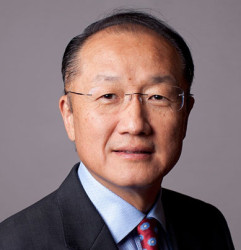By Jim Yong Kim
Since the Zika outbreak gained global attention earlier this year, photos of babies with microcephaly have appeared on television screens and newspapers around the world. They have become emblems of the human cost of the virus, though a causal link between Zika and the congenital birth defect is yet to be confirmed.
One thing, though, is certain: Behind each of these babies is a mother, many of them rural women living in poverty who are without adequate access to sanitation, health information, and other services. The Zika outbreak has given the world a stark reminder that women’s needs and health must be a priority in global and national prevention and response efforts.
Just days ago, on International Women’s Day, we were reminded that we need to give special attention to gender gaps in health. They remain unacceptably large, especially for women in developing countries who, for example, account for 99 per cent of global maternal deaths.

Many countries in Latin America and the Caribbean have stronger health systems than in other regions in the developing world. However, the region also has the highest rates of unplanned pregnancy in the world at 56 percent, according to a 2012 study.
The unmet need for family planning services is also high in some countries: 23.7 per cent of women in Haiti, 13.9 per cent in Bolivia, and 18.5 per cent in Guatemala want but lack access to such services, according to surveys. And countries like El Salvador have very high teen pregnancy rates, often due to unplanned pregnancies resulting from a lack of information and access to reproductive health services.
Women in the region are also at great risk of gender-based violence: a 2012 study in 12 countries by the Pan American Health Organization (PAHO) and the US Centers for Disease Control (CDC) found that between 17 and 53 per cent of women reported experiencing physical or sexual violence by an intimate partner. This is broadly consistent with WHO estimates that about a third of women have experienced physical or sexual violence globally. While avoiding pregnancy might be a wise decision in this climate of uncertainty around Zika, that option is currently unavailable to many women who may not have freedom to say no to their partner or insist on contraception.
Other major health crises also show that women often are hurt the most. During the recent Ebola epidemic in West Africa, the impacts on women were immense, not just because of the direct impacts on their own health but also because of huge increases in their traditional caretaking responsibilities and resulting loss of income and productivity. Maternal deaths increased in the affected countries because health systems came under enormous strain: a World Bank Group study in mid-2015 estimated that maternal mortality in the worst-affected countries could skyrocket to rates not seen for a generation, due to the heavy loss of health workers from the epidemic.
Two weeks ago, the World Bank made financial support available for governments in the Latin America and Caribbean region to support their Zika response efforts. We believe that in addition to controlling mosquito populations, increasing awareness about how to prevent Zika transmission, and supporting research and development, we must put the health needs of women front and center. Without that, the response will fall short. Equally important, reproductive health services and related outreach efforts must target both women and men.
Across all regions, women can be powerful agents of change to help lift economies out of poverty and build resilience in the face of fast-moving threats and shocks such as Zika — especially when they are able to make themselves heard and exert decisive control over their own health and lives.
We are still at an early stage in the Zika crisis, and there is much we do not know about the disease. But we can already see its direct impact on women. As the world mobilizes to help stop the spread of Zika, we must emphasize the benefits of empowering women – and ensure that they have access to the health care that they deserve.
Jim Yong Kim is President of the World Bank Group.
Follow @JimKim_WBG for updates.




